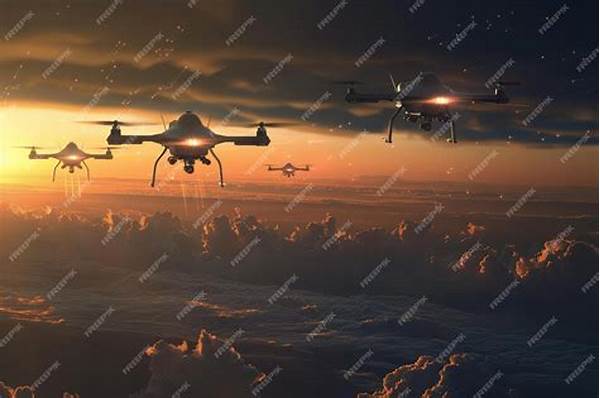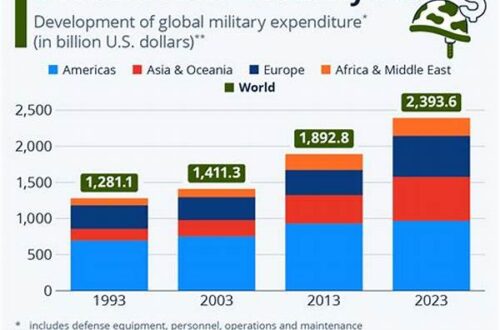In recent years, the utilization of drones for intelligence collection has revolutionized the landscape of surveillance and reconnaissance. These unmanned aerial vehicles (UAVs) provide unparalleled capabilities in gathering real-time data, enhancing the efficiency and effectiveness of intelligence operations. As technology continues to advance, the strategic implementation of drone-enabled intelligence collection is set to play a pivotal role in modern security frameworks.
The Role of Drones in Intelligence Gathering
The integration of drones into intelligence gathering missions has opened new avenues for collecting comprehensive data from diverse environments. High-resolution cameras and advanced sensors equipped on drones allow for detailed imagery and data acquisition over large areas. These capabilities enable the collection of critical information without risking human lives in potentially hostile or inaccessible regions. Through intelligence gathering by drones, operatives can receive live feeds and make informed decisions rapidly. Furthermore, this method provides a cost-effective solution in comparison to traditional manned reconnaissance missions. As drones become more sophisticated, their ability to autonomously navigate and analyze environments enhances the timeliness and precision of the intelligence collected, facilitating faster strategic responses and bolstering national security measures.
Advantages of Drone Use in Intelligence
1. Cost Efficiency: Intelligence gathering through drones reduces operational expenses by eliminating the need for extensive manpower and resources seen in traditional reconnaissance operations.
2. Enhanced Safety: By employing drones, intelligence agencies can collect crucial data from high-risk areas without endangering personnel, making missions safer.
3. Real-Time Analysis: Drones provide instantaneous data collection and analysis, allowing intelligence operatives to react to situations as they unfold.
4. Versatility: Drones are capable of operating in diverse environments, ranging from urban areas to remote terrains, enhancing the versatility of intelligence operations.
5. Covert Operations: Due to their discreet nature, drones facilitate covert intelligence gathering, minimizing the likelihood of detection and interference by adversaries.
Technological Innovations in Drone Intelligence
Technological advancements have vastly improved the capabilities of intelligence gathering through drones. Modern UAVs are equipped with sophisticated navigation systems, enabling precise and autonomous flight patterns. The integration of artificial intelligence has further augmented drone functionality, allowing for the automated sorting and interpretation of data collected during missions. This evolution reduces the workload on human analysts, expediting the intelligence processing cycle. Additionally, the incorporation of stealth technology ensures the minimization of drone detection, thus preserving the confidentiality of operations. The improvement of battery life and flight endurance extends mission duration and enhances operational scope, reinforcing the strategic importance of drones in intelligence communities. Consequently, innovations in drone technology are pivotal in meeting contemporary and future intelligence needs.
Challenges in Drone-Assisted Intelligence Operations
Despite the numerous advantages of intelligence gathering through drones, several challenges persist. Technical limitations, such as battery capacity and payload restrictions, can hinder extended operations. Furthermore, the reliance on secure communication channels is critical, as interception or jamming of signals by adversaries can compromise mission integrity. Regulatory constraints pose additional hurdles, as varying international laws and airspace regulations must be navigated carefully to ensure compliant operations. Ethical considerations, including privacy concerns and the potential for misuse, necessitate vigilant oversight and governance. Addressing these challenges is essential for the sustainable and responsible deployment of drones in intelligence operations, ensuring their continued effectiveness and acceptance.
The Impact of Drones on Modern Intelligence Strategies
The adoption of intelligence gathering through drones has significantly influenced contemporary strategies in national and international security domains. By offering a comprehensive view of real-time situations, drones enhance situational awareness and decision-making processes for military and civilian agencies alike. Drones serve as force multipliers, enabling state and non-state actors to optimize resource allocation and deployment strategies. As a result, the inclusion of drone-based intelligence is becoming standard practice within strategic frameworks, enhancing the adaptability and responsiveness of intelligence operations to dynamic global threats. Consequently, drones are indispensable tools within modern intelligence arsenals.
Ethical and Legal Considerations
The deployment of intelligence gathering through drones raises pertinent ethical and legal issues that necessitate careful examination. Ensuring privacy rights while benefiting from enhanced surveillance capabilities challenges legislators and technologists alike. The potential for abuse of drone technology for unauthorized surveillance or aggressive actions requires stringent regulatory measures. Continuous discourse and development of international legal frameworks are essential to address these concerns comprehensively. Collaborative efforts among nations, technology developers, and regulatory bodies must prioritize establishing clear guidelines and standards governing the ethical use of drones in intelligence. Safeguarding ethical and legal standards is imperative for maintaining public trust and international cooperation.
Conclusion
In conclusion, intelligence gathering through drones signifies a monumental shift in surveillance capabilities, promising heightened efficiency and safety for intelligence operations. While challenges such as technical limitations, regulatory compliance, and ethical considerations persist, ongoing technological advancement and legislative discourse continue to mitigate these issues. The strategic advantages offered by drones in intelligence domains underscore their importance in contemporary security operations. As global threats evolve, the adaptation and integration of drone technology within intelligence frameworks will remain critical in ensuring robust national and international security measures. The future of intelligence depends significantly on the continued evolution and conscientious deployment of drones in this domain.





